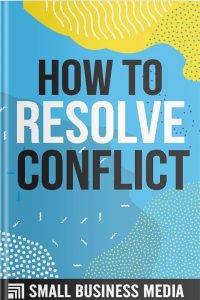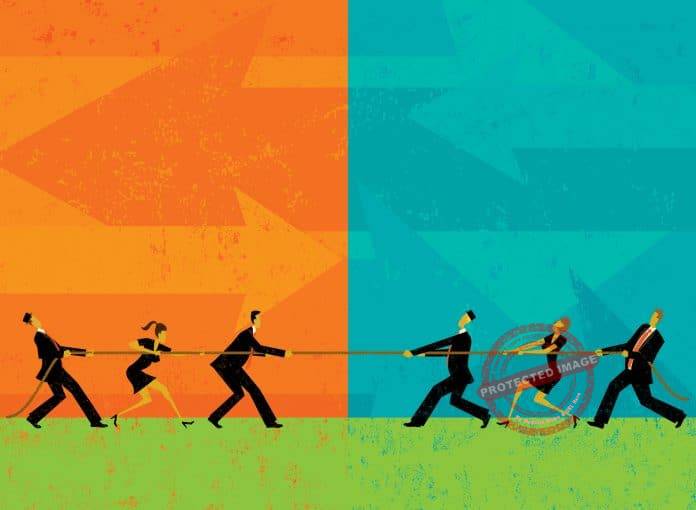Do you want to know how to resolve conflict?
Are you trying to build conflict resolution skills as an individual?
Conflict can arise anytime; more especially so in a diverse environment.
Poor conflict management strategies could lead to serious problems.
It could make it difficult to ensure peaceful coexistence among people.
Either in business, work, or personal life, it makes sense to know how to resolve conflict.
This is so you can avoid the negative effects or consequences of unresolved conflict around you.
Stay with us in this blog post.
This is so you can discover how to develop conflict resolution skills .
Thereby, helping you better resolve conflict around you.
How To Resolve Conflict
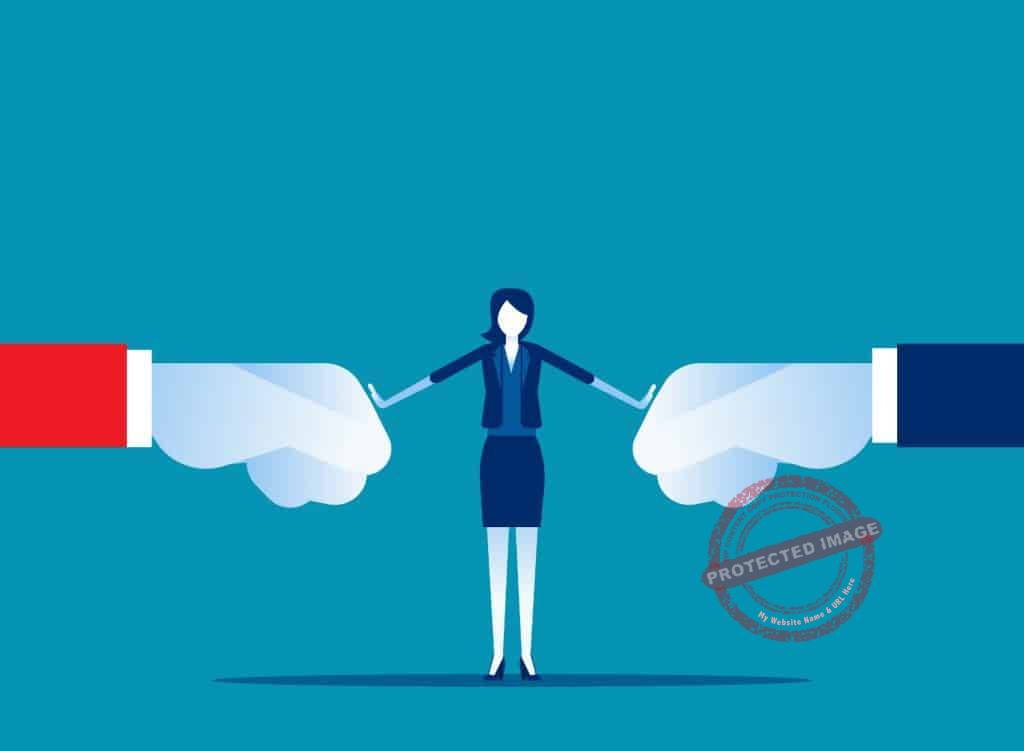
Unresolved conflict leads to damaged relationships either in business, work, or personal life.
It also destroys peaceful coexistence and the spirit of collaboration between people.
Fortunately, there are effective ways to resolve conflict.
This is so you can ensure peaceful working and interpersonal relationships.
Before then let’s consider the following points;
- What is conflict resolution?
- Causes of conflict
- Effects of poor conflict management/resolution
What Is Conflict Resolution
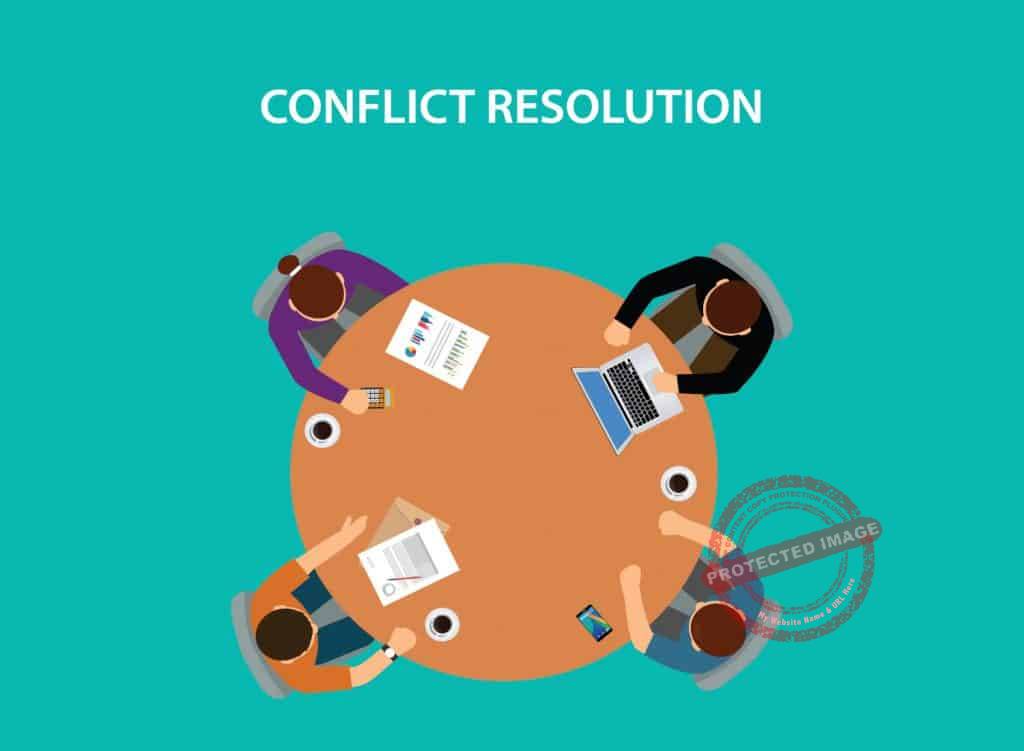
Conflict resolution is the act of resolving disputes between two or more people.
It has to do with finding a peaceful solution between two disagreeing parties.
Overall, conflict resolution has to do with resolving differences.
Let’s move on to discover what causes conflict among people either in an organization, society, or interpersonal relationships.
Causes Of Conflict
Many things could cause conflict between people.
Some of these things could be a result of physical, environmental, psychological factors.
Economic factors such as recession, bad debt, etc could also trigger negative feelings in an individual.
Thereby, making people react negatively and causing conflict between people.
Over the years, research has shown that there are different causes of conflict in the workplace, society, and interpersonal relationships.
Hence, here are some of the causes of conflict between people.
Misunderstandings Due To Lack Of Effective Communication
Sometimes the reason most people conflict with each other is due to misunderstandings.
They have a misunderstanding about a particular situation or occurrence.
Hence, they hold different views and opinions about the situation.
When there’s no effective communication between people, misunderstandings are bound to happen.
This is because there’s no clear understanding of the message sent or received.
Thereby, leading to a misconception of ideas and conflict between both parties.
Misunderstandings also make it difficult to resolve conflict.

Emotional And Physical Stress
Another factor that triggers conflicts between two or more people is stress.
This stress could be either emotional or physical stress.
Stress causes people to get mixed up in all sorts of negative emotions such as frustration, anger, depression, and burnout.
This physical and emotional stress could also trigger negative emotional outbursts.
Thereby, making people lose control of their behavior and react negatively.
Consequently leading to conflict and making it difficult to resolve.
Different Perspectives
Different perspectives can be a great trigger of conflict between two or more people.
More so, this kind of situation makes conflict difficult to resolve.
This is because conflicting parties have different ideologies.
Hence, making it difficult to find a common ground of interest to resolve the conflict.
Everyone has a certain perception of things that are influenced by the different experiences they’ve been exposed to.
More so in working and interpersonal relationships, these different views clash.
In the process of expressing these different perspectives on a particular situation, arguments and disagreements ensue.
Thereby, leading to conflict.

Different Values And Beliefs
Another thing that causes conflict between people is the different values and beliefs.
These values or beliefs could be based on religious grounds or personal values.
Whatever the values or beliefs are based on, when these values and beliefs are challenged most people tend to react negatively.
Thereby, leading to conflict and making it hard to resolve.
Different Goals
Another reason why people have conflict is as a result of their different goals.
Different goals could trigger conflict between people.
This is because what is important to people is different from individual to individual.
So, when people come together and their goals are not aligned with each other especially in an organization, conflict is bound to happen.
This is because they can’t seem to find a common ground of interest on which they agree.

Personal Traits And Habits Patterns
Personal traits and behavior patterns can also lead to conflict.
People have different temperaments and ways they react to negative situations.
Even more, people have different negative habit patterns that could trigger conflict.
For instance, some people are naturally rude and they give rude responses to people even when the situation doesn’t warrant it.
Also, some people naturally enjoy arguing, debating, and nagging about irrelevant things.
Given this, they look for every little opportunity to display their negative habit patterns.
Hence, giving room for conflict between people that they relate with.
Overall, the causes of conflict could vary depending on the people and the kind of environment involved.
For example, the causes of conflict in an organization could be slightly different from the causes of conflict in the home.
These are just a few of the major causes of conflict.
Now let’s move on to examine the effects of poor conflict management.
Effects Of Poor Conflict Management/Resolution
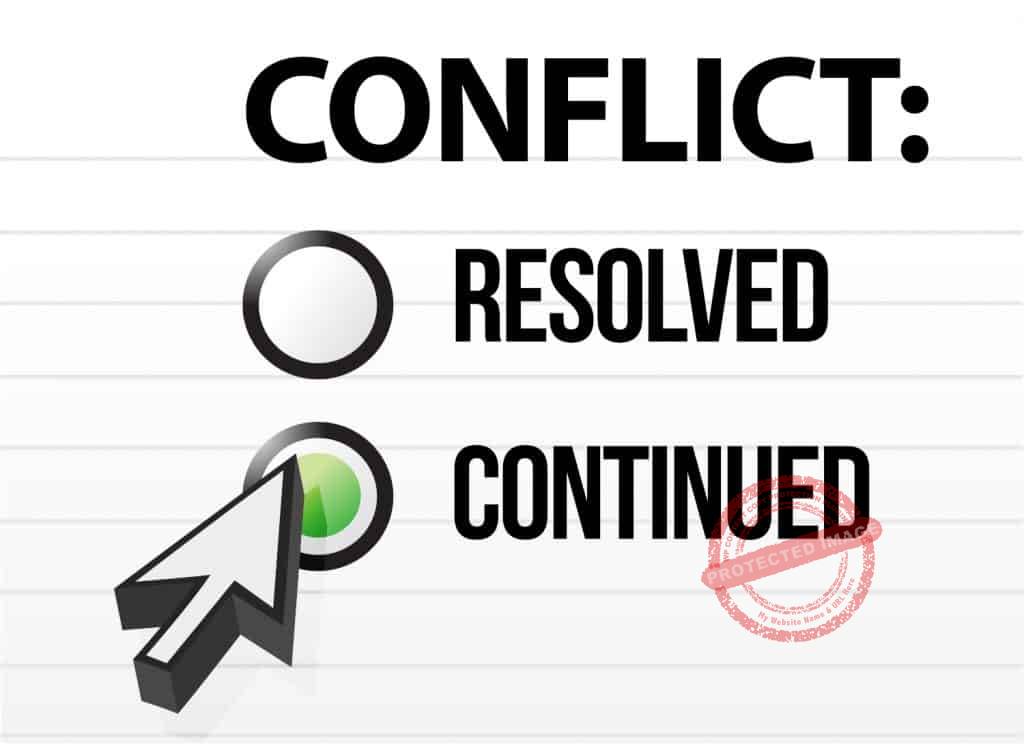 Unresolved conflicts could have very damaging consequences on the parties involved.
Unresolved conflicts could have very damaging consequences on the parties involved.
Poor conflict management could lead to more problems either in the workplace, home, or social relationships.
Here are some of the effects of poor conflict management.
- It leads to more conflicts and even physical violence if not handled promptly.
- Poor conflict management breaks trust and the spirit of cooperation between parties involved.
- It also leads to emotional stress and mental health issues such as anger, depression, bitterness, frustration among others.
- It leads to the breakdown of communication between parties.
- Poor conflict resolution could also give rise to unhealthy rivalry and competition between parties involved.
This is because conflict occurs due to a clash of interest and opposing views.
Consequently, parties become knowingly and unknowingly involved in a competition of views and whose perspective is the right one.
Hence, the need to promptly resolve conflict.
This is so that it doesn’t lead to even greater problems that could have been avoided.
Now let’s examine how to resolve conflict either in the business, work, or social setting.
Tips For Conflict Resolution (Conflict Resolution Skills)
Conflict is inevitable in most interpersonal relationships.
So, it’s best to be equipped with effective strategies to resolve conflicts.
This is to prevent the negative consequences of unresolved conflicts.
Individuals with conflict resolution skills are good at maintaining positive personal and professional relationships.
Thereby, making them productive and efficient in whatever they do.
Hence, here are some of the conflict resolution skills you should develop.
This is so you can resolve conflicts either as a business owner, entrepreneur, or regular individual.
Effective Communication Skills
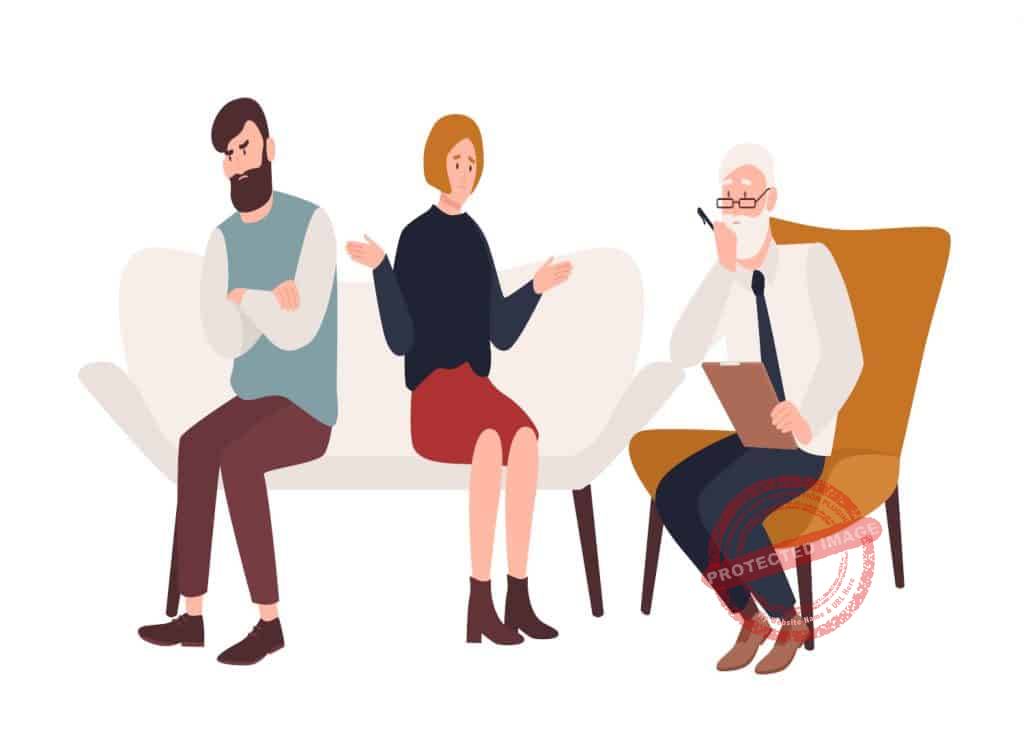 One of the causes of conflict we examined earlier on is the lack of effective communication.
One of the causes of conflict we examined earlier on is the lack of effective communication.
Also, one thing that could help you resolve conflict is effective communication.
Effective communication is a two-way thing.
It involves passing the right message across and receiving the right message.
Effective communication is more than just giving and receiving messages or information accurately.
It also involves knowing when, how to speak, and what to say given the current situation of things.
As such when trying to resolve conflict your effective communication skills would come in handy.
It would help you pay attention to the verbal and non-verbal cues during communication.
More so, it helps you listen actively.
Thereby helping you identify the source of conflict and how to best resolve the situation.
Effective communication skills you need to resolve conflict especially as a mediator include;
- active listening
- giving verbal and nonverbal cues
- recognizing and respecting individual differences
- expressing views and feelings in a clear, concise, and respectful manner
Thus helping you avoid misunderstandings and resolving conflicts peacefully.
Emotional Intelligence Skills
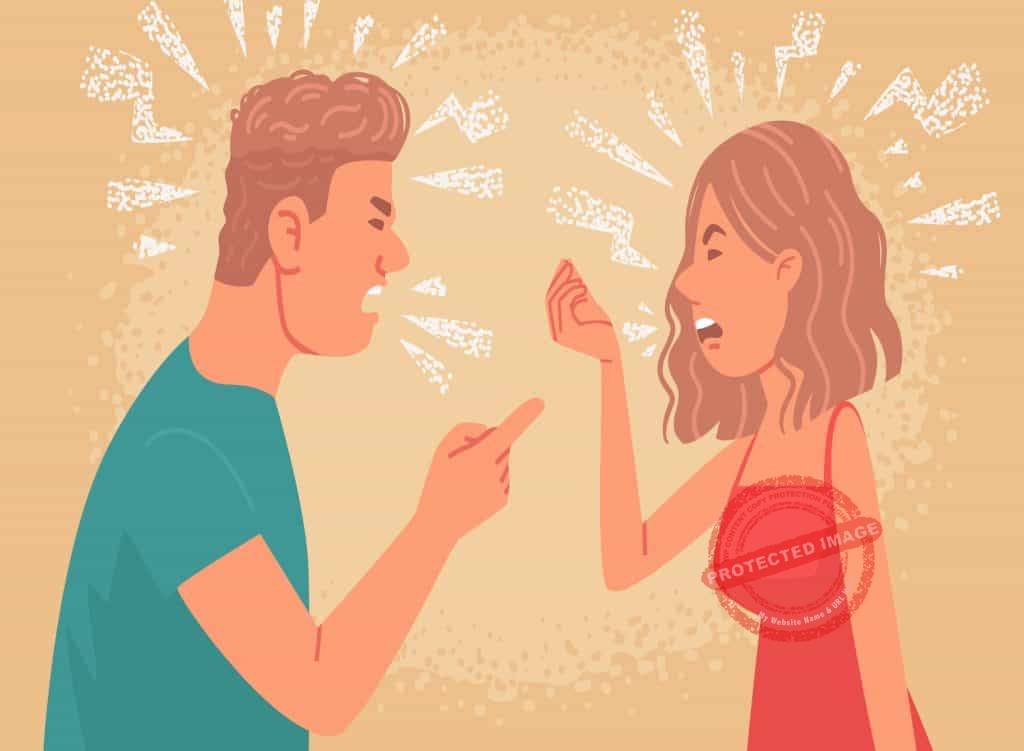
Another important skill you need to resolve conflict is emotional intelligence.
Emotional intelligence is all about achieving emotional awareness.
In other words, it is being aware of your emotions and that of other people around you.
It is also an effective skill that helps you understand people and how best to deal with them.
Thereby helping you control your reactions to people’s emotions.
Either as a business owner, employee, or regular individual, your emotional intelligence is important for resolving conflict.
For instance, as a business owner seeking to resolve conflict among employees build emotional intelligence.
This is so you can understand the emotions of people around you.
It would also help you understand how best to deal with emotional situations and conflict.
Thus helping you resolve conflict timely and preventing it from escalating into unhealthy confrontations.
Building emotional intelligence is a matter of possessing the five components of emotional intelligence.
The five components of emotional intelligence include;
- Self-awareness
- Self-regulation
- Empathy
- Motivation
- Social skills
Overall, emotionally intelligent individuals are better equipped to handle and resolve conflict than people without it.
This is because they can recognize people’s emotions and react proactively.
Hence, to know how to resolve conflict build emotional intelligence.
Stress Management Skills
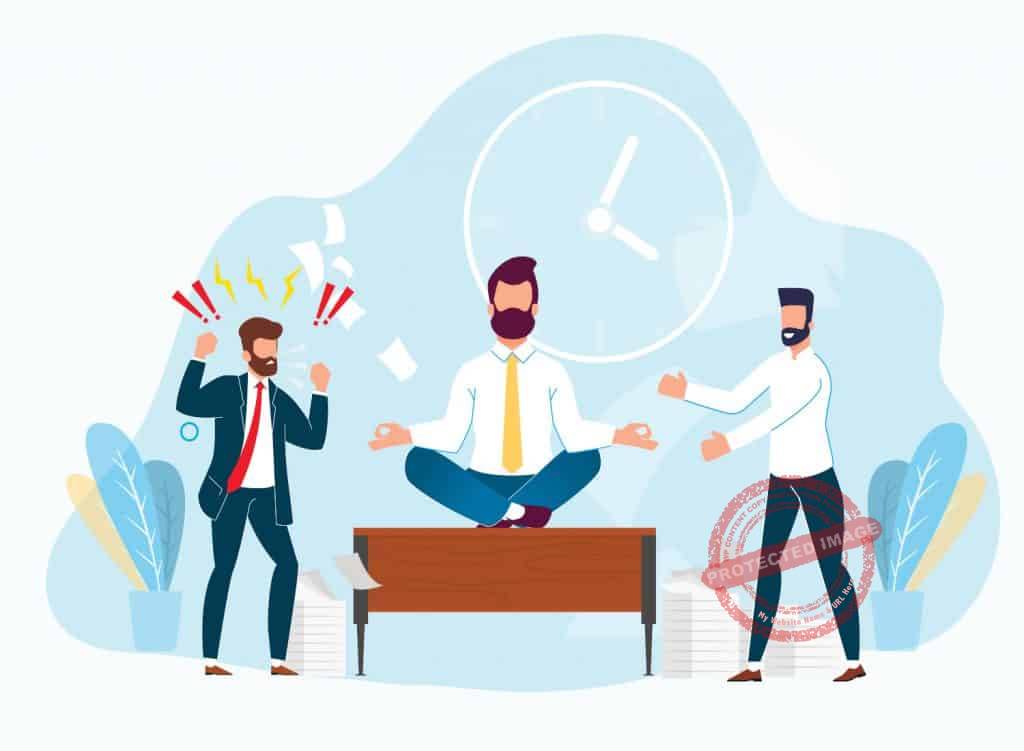
Another important conflict resolution skill that you need to have to better resolve conflict is stress management.
Stress management involves practices that are used to reduce the tension or pressure of situations.
Stress has a way of messing with people’s emotions and logical thinking.
Work pressure and other personal issues could lead to stress.
Individuals with ineffective stress management skills tend to be a little bit on the edge most times.
Thereby making them react to situations negatively.
More so, conflict tends to create stressful situations for those involved in the conflict.
Hence, stress management skills are needed to manage emotions and reduce the frustration of the conflict.
It would also help conflicting parties remain calm and emotionally stable during the conflict resolution process.
Thus preventing them from reacting negatively and escalating the whole situation.
So, on a personal and professional level, stress management skills are needed to remain calm and clear-headed before and during the conflict resolution process.
Some stress management tips include;
- Meditation, yoga, tai-chi, etc.
- Exercises regularly
- Eating healthy foods
Hence, develop stress management skills so you can resolve conflict effectively.
Negotiation Skills
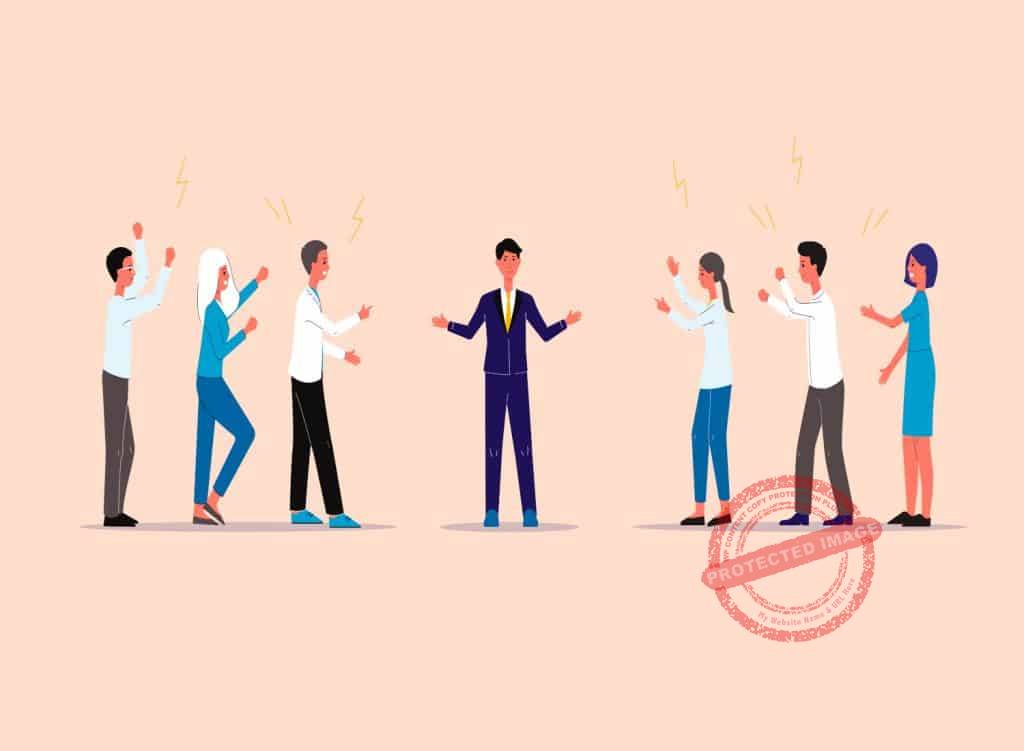
Negotiation is an important part of conflict resolution.
It is the process of reaching mutually agreeable decisions between people with different aims and interests.
It is also an important skill to possess in interpersonal relationships.
Earlier we stated that different goals, interests, and perspective is one of the leading causes of conflict between individuals.
This is where negotiation skills play a very important role as a way to resolve conflict.
Negotiation skills help conflicting parties engage in meaningful discussions.
During this process, they express their different views and opinions in a more respectable and considerate manner.
This helps conflicting parties come up with a diplomatic way to resolve the conflict at hand.
Furthermore, it helps conflicting parties resolve their differences in a way that benefits them both.
Tips on how to develop negotiation skills include;
- Be positive minded
- Be an active listener
- Always be prepared for any negotiation process
- Know what you want and be confident to ask for it
- Engage with the other party and strive to identify how it can be a win-win situation
As a business owner or a regular individual building negotiation skills would help you better resolve conflict.
Problem-Solving Skills
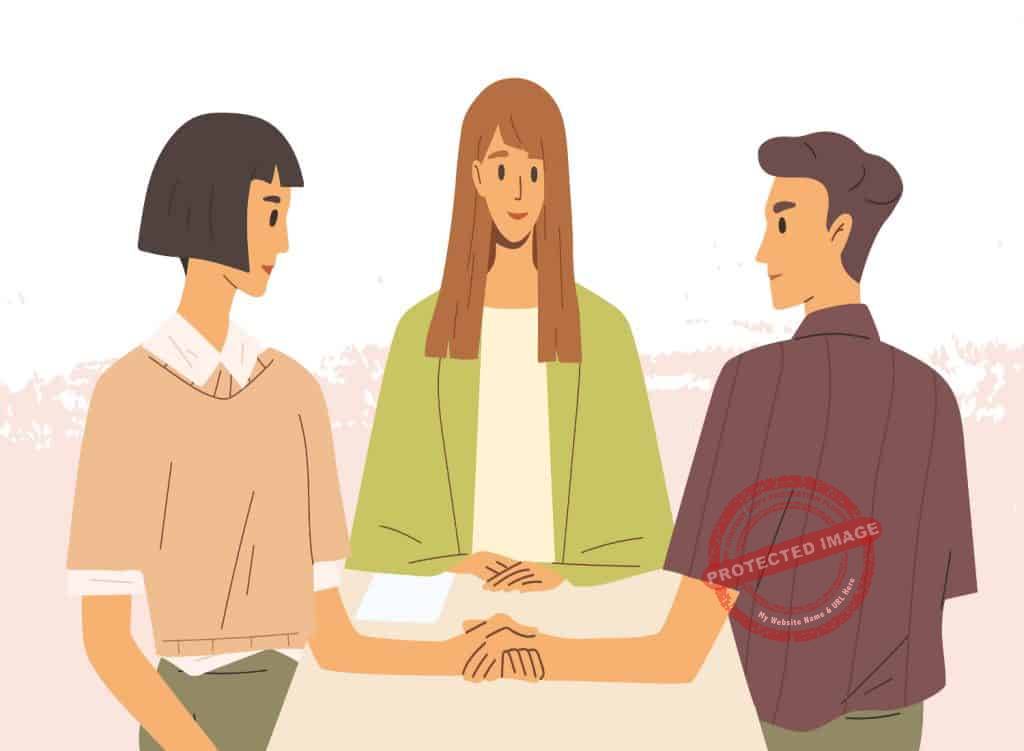
Problem-solving is another important part of resolving conflicts.
The process of resolving conflict involves analyzing situations and identifying the causes of conflict.
It also involves brainstorming different solutions that can help solve the problems causing the conflict.
This is why problem-solving is an essential skill to have in conflict resolution.
Given this, as a business owner, you must be equipped with problem-solving skills.
More so, as a regular individual having problem-solving skills would equip you with the knowledge of how to solve the problems causing the conflict.
Some tips on how to develop problem-solving skills include;
- Become a critical thinker
- Carefully analyze problems and brainstorm possible solutions
- Have multiple alternatives to solve problems
Thereby, helping you resolve conflicts promptly and preventing an escalation of problems.
Fair- Mindedness (Impartiality)
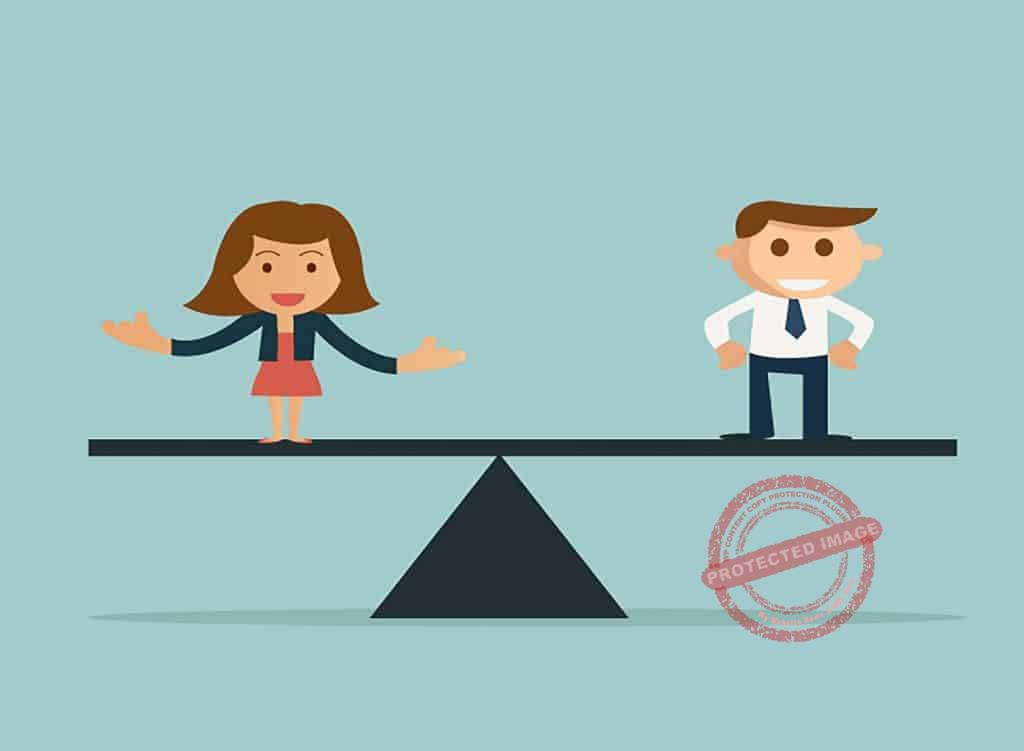
You might begin to wonder if impartiality is a skill that can be learned or developed.
One can learn to overcome the tendency to be biased and partial in interpersonal relationships.
All that is needed is honesty and a lot of self-discipline.
Impartiality is one of the core requirements for effective conflict resolution.
To be impartial means to be free from personal prejudices or biases thus helping you treat everyone fairly and respectably.
To effectively resolve conflicts you need to be unbiased.
You also need to be impartial in your evaluation of people’s character.
Sometimes, certain historical and personal biases stand in the way of establishing mutual relationships with people around you.
This is because you hold certain negative perceptions about the person’s behavior or character.
Having this kind of biased mindset can further fuel conflict and lead to escalation if not handled promptly.
Given this when trying to resolve conflict ensure that your focus is on the cause of conflict and not on your personal biases.
By doing this you’ll be able to effectively resolve conflict without any biases standing in the way.
Hence, either as a business owner or regular individual, you must be impartial if you want to effectively resolve conflict.
Putting these skills together here are some quick tips on how to resolve conflict.
Quick Tips Summary On How To Resolve Conflict
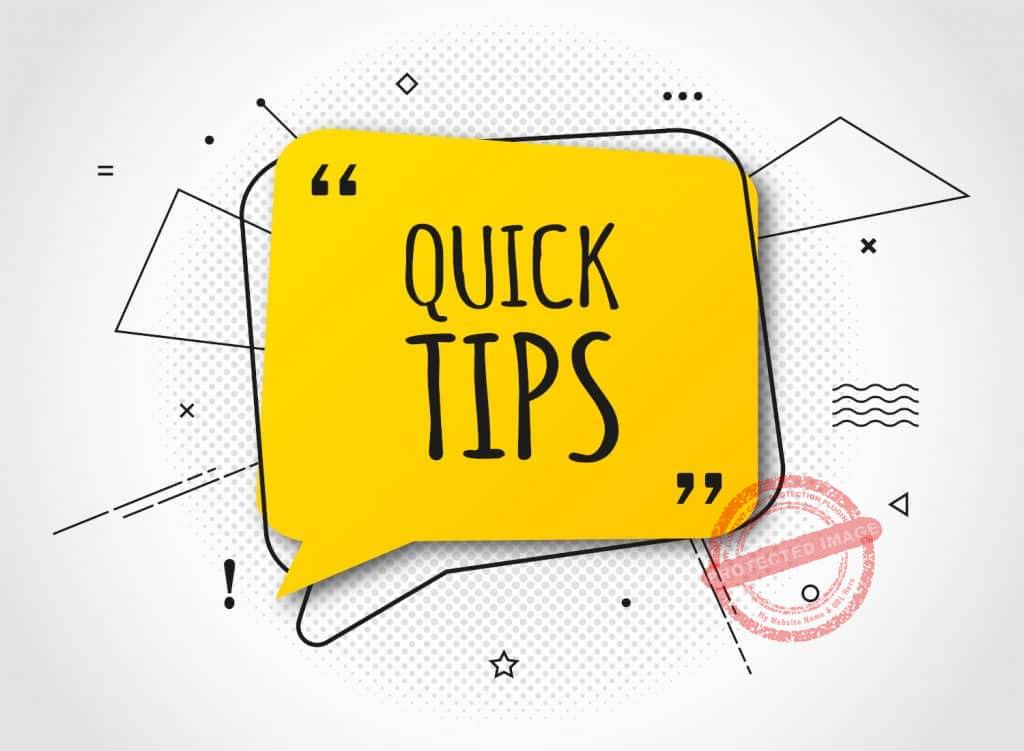
- Practice active listening when trying to resolve conflict
- Pay attention to your emotions and that of the other party or parties involved
- Show empathy
- Minimize or manage your stress levels and keep your emotions in check
- Be diplomatic in your approach when expressing your views or interests
- Resolve on possible solutions that would benefit both parties involved
- Be unbiased and impartial when trying to resolve the cause of conflict
Conclusion On How To Resolve Conflict
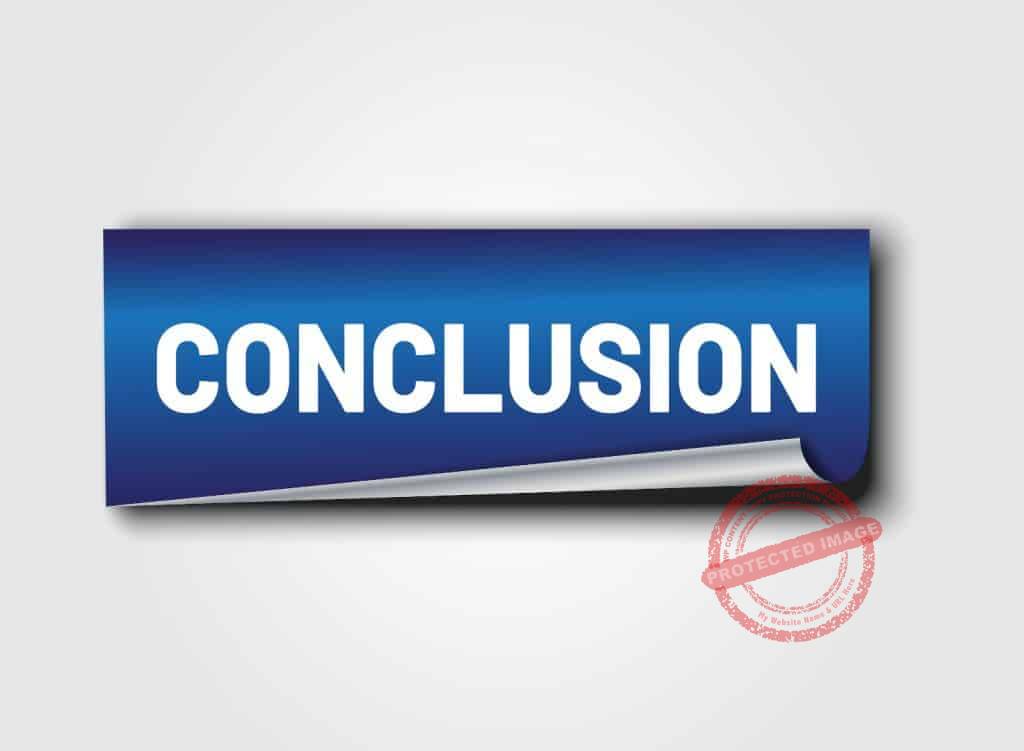
Conflict resolution is a very sensitive issue that needs to be carefully handled.
This is because poor conflict resolutions can leave both parties involved unsatisfied.
When this happens, it could further damage existing relationships.
In worst-case scenarios, it could escalate to a physical confrontation which could lead to dangerous consequences.
As said earlier, conflict is an inevitable part of interpersonal relationships.
Employees in the workplace could have a clash of interests.
Thereby, leading to conflict in the workplace.
This could lead to emotional and mental stress.
Hence, harming the productivity and efficiency of employees in the workplace.
Furthermore, individuals struggle with conflict in their personal and social relationships.
Friends, spouses, and partners sometimes have a clash of interests or an emotional outburst that leads to conflict.
More so, in society at large different regions, religions and races encounter a clash of interests.
These sometimes escalate into fights between these communities when not handled properly.
Given this, I hope you see the need to know how to resolve conflict.
This is so you can be equipped with the right strategies to resolve conflicts personally or as a mediator.
See these effective tips and learn the different conflict resolution skills you need to resolve conflict.
How do you deal with conflicts on a personal level?
Do you avoid the situation, compromise your situation, or find common ground to agree with the conflicting party?
Share your thoughts with us in the comments section below.
We would love to hear from you.
Click on Buy Now For A PDF Version of This Blog Post
 |
